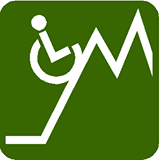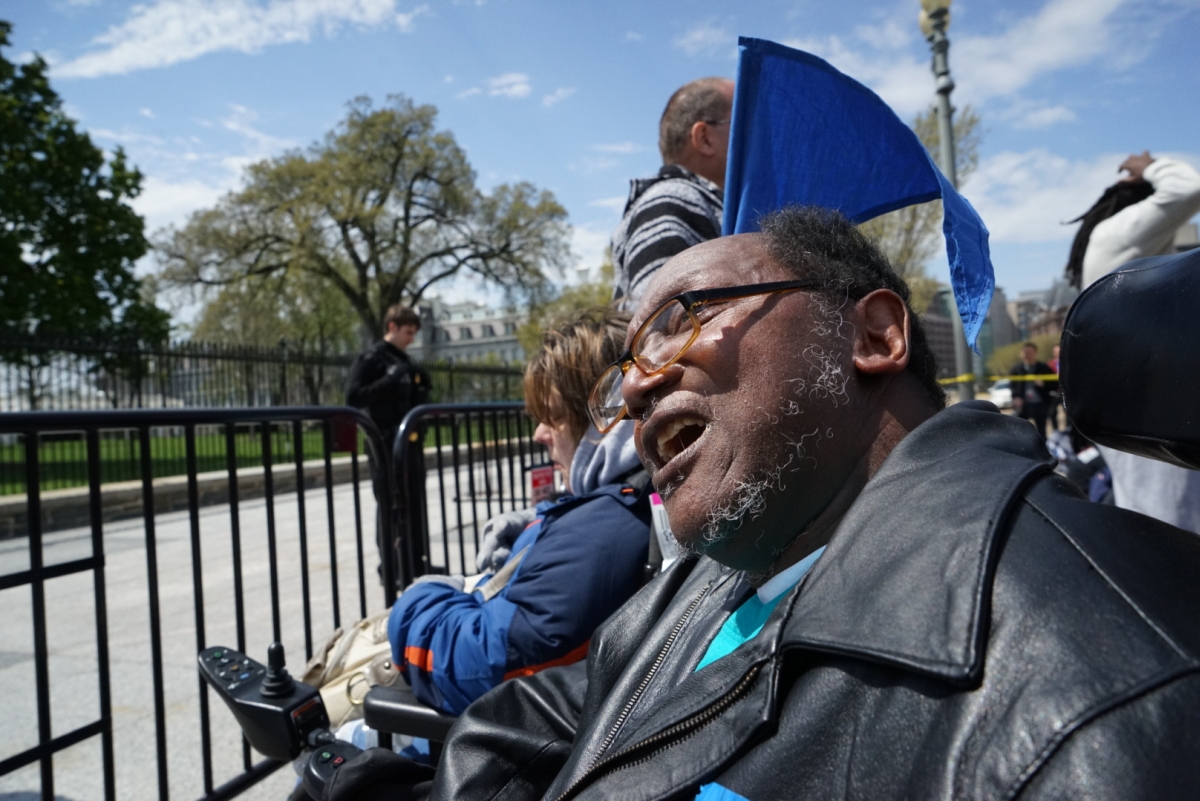The Urgent Need to Vaccinate and Support Older Adults and People with Disabilities
COVID-19 has disproportionately affected people with disabilities and older adults. All people who receive long- term services and supports (LTSS) in the community, regardless of age or type of disability, face a higher risk of COVID-19 infection. Those risks are even greater for older adults and people of color with disabilities.
The Memphis Center for Independent Living, the Administration for Community Living’s (ACL) aging and disability networks are collaborating with state, local, and federal partners to support the need for vaccination of high- risk populations, and to support older adults and people with disabilities in need of community living services and supports. ACL programs are highly engaged with states and other partners working to ensure vaccine access for people with disabilities and older adults, and to provide and improve access to services and supports that address their functional needs so they can remain in their homes and communities.
This document is a summary of ACL’s programs with examples of activities and partnerships that can support access to vaccines and critical services and supports at the community level.
ACL has also created a webpage with vaccination and booster resources for the aging and disability networks.
Major Components of ACL’s Disability and Aging Network
Centers for Independent Living (CILs)
Serve individuals with significant disabilities of all types.
There are 354 CILs in communities in every U.S. state and territory. CILs offer the following core services (at a minimum): information and referral, independent living skills training, peer counseling, individual and systems advocacy, transition and diversion from nursing homes and other institutional settings back into the community, and transition of youth to postsecondary life.
The Memphis Center for Independent Living: Phone: 901-726-6404; email: mcil@mcil.org; website: www.mcil.org.
Vaccine-related activities include coordination of accessible transportation services; assessing needs and status of clients; coordinating services; addressing inaccessible vaccine sites; locating and/or providing mobility equipment, personal care attendant services, or ASL interpreters; educating communities about reasonable accommodations; and providing outreach and education about vaccines and boosters, including addressing hesitancy.
Area Agencies on Aging and Disability (AAADs)
Serve older adults (age 60+) and family caregivers. A majority of AAADs also serve people with disabilities through other funding sources.
There are 622 AAADs across the nation, which are public or nonprofit organizations designated by State Units on Aging to address the service and support needs of older adults at regional and local levels.
The specific names of AAAs vary. To find a local AAA, go to Eldercare.acl.gov or call 800-677-1116.
AAAs contract with 20,000+ local providers nationwide to provide services and programs that may include congregate and home-delivered meals, information and assistance, evidence-based chronic disease prevention programs, caregiver respite, case management, transportation, homemaker support, and personal care.
Vaccine-related activities include identifying and reaching out to underserved older adults, including people who are homebound, live in rural areas, or have limited English proficiency; assisting LTSS clients and their caregivers to register for vaccines and boosters; facilitating transportation to and from vaccine appointments; providing second-dose reminder calls and booster outreach; collaborating to combine vaccine delivery with existing home-delivered food services; and organizing and implementing targeted vaccination clinics.
Long-Term Care Ombudsman Program
Advocates for people living in nursing homes, board- and-care homes, assisted living facilities, and similar facilities to resolve their individual problems and to bring about changes that improve their care, quality of life, and rights. Find a local LTC ombudsman program.
Vaccine-related activities include providing information and assistance on how to obtain vaccines and boosters for residents and staff including addressing vaccine hesitancy.
Native American Grantees
Serve native elders (age determined by each tribe).
There are 282 Native American Grantees serving over 400 tribes.
Provide supportive services, nutrition services, and caregiver support to native elders and their families.
Vaccine-related activities include reaching out to and educating individuals who have not been vaccinated or boosted, partnering to organize transportation to vaccination clinics, and offering case management.
Protection and Advocacy Systems (PandAs)
Serve individuals with all types of disabilities.
There are 57 PandAs. PandAs are in every state and territory. There is also one PandA that serves the Navajo and Hopi Nations in New Mexico, Arizona, and Utah.
PandAs are a nationwide network of congressionally mandated agencies that provide a range of legal advocacy services to protect the rights of individuals with disabilities (e.g., those denied access to a service or an opportunity to take part in an activity). PandAs address allegations of neglect or abuse and conduct monitoring and investigations of facilities. Find a local P&A.
Vaccine-related activities include contacting people with disabilities to assess status and needs, ensuring vaccination sites are accessible, ensuring access to services, and providing legal expertise to state and federal agencies.
State Councils on Developmental Disabilities (DD Councils)
Governor-appointed councils of individuals with developmental disabilities, their families, and other key groups.
There are 56 DD Councils. DD Councils are in every state and territory. They identify gaps in services and implement strategies to address needed system-level changes.
Vaccine-related activities include creating plain language materials; hosting Q&As about vaccines and boosters with local and state agencies, developing vaccine site accessibility checklists, reaching out to and educating individuals with disabilities, and providing information and referral services.
State Grants for Assistive Technology (AT) Programs
Serve individuals with disabilities of all ages and their families.
AT programs in every state and territory help make AT devices/equipment and services available. Their efforts range from “low tech” (e.g., built-up handle on spoon to improve ability to grasp) to “high tech” (e.g., computers controlled with eye movement). Other examples of supports are home automation solutions and services to obtain and use devices. AT support can also include assessment, customization, repair, and training.
Vaccine-related activities include assisting with accessibility of vaccination sites, registration processes, websites, and outreach materials; supporting vaccination hotlines for people with disabilities; and providing subject matter expertise and technical assistance related to accessibility and AT.
State Units on Aging (SUAs)
Serve older adults (age 60+) and family caregivers.
Governor-designated state government agencies that advocate for and assist older adults, their families, and, in many states, adults with physical disabilities. Located in each state and territory. To find an SUA, visit Eldercare.acl.gov or call 800-677-1116.
Provide funding to AAAs to provide home and community- based services and programs including meal programs, case management, transportation, home care, and caregiver respite.
Vaccine-related activities include collaborating with state emergency response agencies to identify high-risk communities and support targeted vaccination and booster efforts; working with paratransit agencies, nursing groups, and other partners to identify individuals who might benefit from mobile vaccination clinics; coordinating with state emergency management agencies; providing situational awareness to ACL; identifying gaps and coordinating information; and coordinating with AAAs to restore and limit service disruptions.
University Centers for Excellence in Developmental Disabilities (UCEDDs)
Serve individuals with developmental disabilities and their families.
There are 68 UCEDDs nationwide that conduct interdisciplinary training, community services, research, and knowledge translation in a range of areas, including emergency management. Find a local UCEDD.
Vaccine-related activities include scheduling vaccine appointments for individuals with intellectual and developmental disabilities; working with state Medicaid agencies to support Medicaid-funded transportation to vaccine appointments at non-medical locations, hosting town halls on vaccines for people with disabilities, developing drive-thru vaccination sites, hosting targeted vaccine clinics, and providing vaccinations to group home residents through mobile clinics.
National Hotlines to Support Vaccine Access
ACL, in partnership with the CDC, is funding two national hotlines to connect older adults and people with disabilities to local aging and disability organizations that can assist with vaccine registration, provide services and supports necessary to get the vaccine, and provide access to services and supports that address other community living needs. In addition to English-speaking specialists, both vaccine lines have Spanish-speaking specialists, utilize a language interpretation service for any callers who speak other languages, and provide Video-Relay Service (VRS) for deaf people and people who are hard of hearing.
Disability Information and Access Line (DIAL)
DIAL helps people with disabilities find vaccination locations in their communities make vaccination appointments and connect to local services – such as accessible transportation – to overcome barriers to vaccination.
DIAL also can provide information and resources to answer questions and address concerns about the vaccines and can connect callers to information and services that promote independent living and address fundamental needs, such as food, housing, and transportation.
The hotline is available from 9:00 AM to 8:00 PM eastern time at 888-677-1199.
Deaf people and those who are hard of hearing can reach DIAL using the 711/Video Relay Service (VRS). To use this free service, simply dial 711 and you will be connected with a communications assistant with whom you can text.
More information is available at ACL.gov/DIAL.
Eldercare Locator
The capacity of the Eldercare Locator has been expanded in response to the pandemic to connect older adults, including those who are unable to leave their homes and those who live in underserved communities, to local COVID-19 vaccination resources.
The Eldercare Locator helps older adults find vaccination locations in their communities, make vaccination appointments and connect them to local services to overcome barriers to vaccination.
The Eldercare Locator also continues to connect older adults and their caregivers with local aging organizations in their communities for critical supports and services such as home-delivered meals and other nutrition services, transportation, personal care, homemaker support, and respite for caregivers.
The hotline is available from 9:00 AM to 8:00 PM eastern time at 888-677-1116.
More information is available at Eldercare.acl.gov.



No comments:
Post a Comment